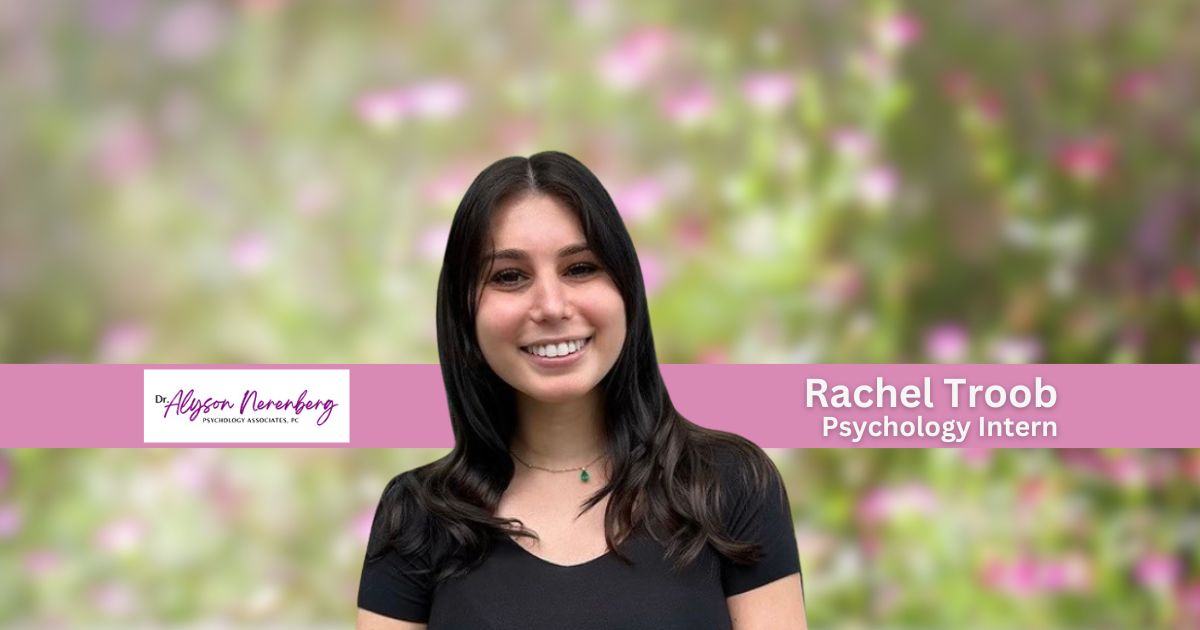

Blog
-

4 Things I Learned Being an Intern in Private Practice
By. Rachel Troob, Psychology Intern As I sit down to reflect on my time as an intern at Dr. Alyson Nerenberg’s private practice, I am overwhelmed with a mix of emotions. The experience has been transformative and filled with valuable lessons that I will carry with me throughout my career and life. From witnessing the…
-

Embracing Self-Love on Valentine’s Day: A Therapist’s Perspective
By. Rachel Troob, Valentine’s Day is often associated with expressions of love towards others, but it’s equally important to turn inward and practice self-love. As a mental health therapist, I understand the significance of nurturing our mental well-being, and Valentine’s Day can serve as a beautiful opportunity for self-reflection and self-care.
-

Time to Disconnect
By. Carly Blumenthal, The world is constantly shifting around us, and it can be hard to keep up with the everlasting new trends, technologies, and social changes. From my experience with patients, I have learned that a lot of teens and young adults are affected by the power of social media.
-

Halloween Anxiety
By. Rachel Troob, Halloween is meant to be an exciting holiday where we dress up and gather with friends. However, Halloween can also be an overwhelming holiday that brings up feelings of anxiety and fear. There’s the anxiety around the actual event of Halloween: the frightening costumes, haunted houses, and big gatherings.
-

Let’s Make Self-Care a Priority Together
By. Carly Blumenthal, The world is constantly shifting around us, and it can be hard to keep up with the everlasting new trends, technologies, and social changes. From my experience with patients, I have learned that a lot of teens and young adults are affected by the power of social media.
-

Should I Stay or Should I Go?
By Dr. Alyson Nerenberg, Although our practice advocates for staying together and working through relationship struggles whenever possible, sometimes it is not in your best interest to stay. The questions below can help you determine what the best course of action may be for you.
